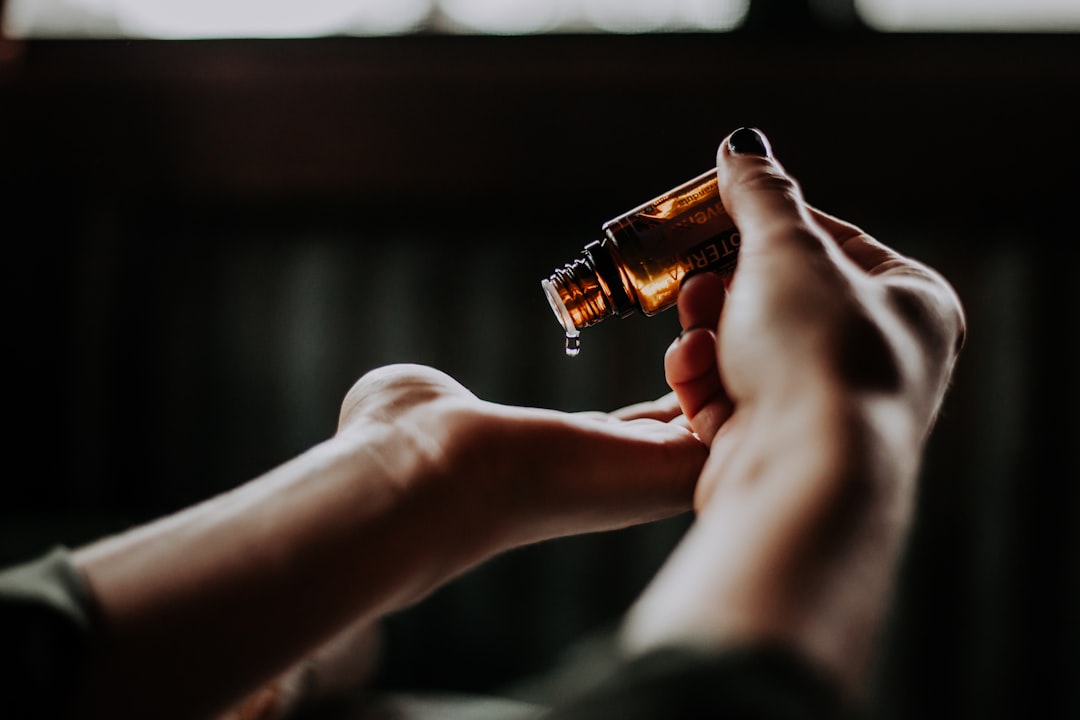Oily skin is a common skin type that is characterized by an overproduction of sebum, the skin’s natural oil. This excess oil can lead to a shiny complexion, enlarged pores, and a tendency to develop acne and blackheads. The main cause of oily skin is genetics, as it is often inherited from one or both parents. Hormonal changes, such as those experienced during puberty, pregnancy, or menopause, can also contribute to the development of oily skin. Additionally, environmental factors, such as humidity and hot weather, can exacerbate oily skin.
Furthermore, individuals with oily skin may experience a range of characteristics, including a greasy or shiny appearance, especially in the T-zone (forehead, nose, and chin), enlarged pores, frequent acne breakouts, and a tendency for makeup to slide off the skin. It’s important to note that having oily skin does not necessarily mean that the skin is well-hydrated. In fact, oily skin can still be dehydrated, leading to a lack of water in the skin despite the overproduction of oil. Understanding the causes and characteristics of oily skin is crucial in order to effectively manage and care for this skin type.
Summary
- Oily skin is caused by overactive sebaceous glands and is characterized by a shiny appearance, enlarged pores, and a tendency to develop acne.
- Moisturizing oily skin is important to maintain a healthy skin barrier and prevent the overproduction of oil.
- When choosing a moisturizer for oily skin, look for oil-free, non-comedogenic formulas that are lightweight and won’t clog pores.
- To apply moisturizer to oily skin, use a small amount and gently pat it onto the skin, focusing on dry areas while avoiding the T-zone.
- Common mistakes to avoid when using moisturizer on oily skin include using too much product, skipping moisturizer altogether, and using heavy, greasy formulas.
The Importance of Moisturizing Oily Skin
Contrary to popular belief, moisturizing oily skin is essential for maintaining a healthy and balanced complexion. Many individuals with oily skin tend to avoid using moisturizer out of fear that it will exacerbate their oiliness. However, skipping moisturizer can actually lead to an overcompensation of oil production as the skin tries to compensate for the lack of hydration. Additionally, without proper moisture, the skin’s barrier function can become compromised, leading to issues such as sensitivity, redness, and an uneven skin tone.
Moisturizing oily skin helps to balance oil production, prevent dehydration, and maintain the skin’s natural protective barrier. By using a lightweight, non-comedogenic moisturizer, individuals with oily skin can ensure that their skin remains hydrated without clogging pores or causing excess oiliness. Furthermore, moisturizing can help to improve the overall texture and appearance of the skin, reducing the likelihood of developing fine lines and wrinkles in the long term. Overall, incorporating a moisturizer into a skincare routine is crucial for maintaining healthy and balanced oily skin.
Choosing the Right Moisturizer for Oily Skin
When it comes to choosing a moisturizer for oily skin, it’s important to look for products that are specifically formulated to address the needs of this skin type. Lightweight, oil-free, and non-comedogenic moisturizers are ideal for oily skin as they provide hydration without adding excess oil or clogging pores. Look for ingredients such as hyaluronic acid, glycerin, and ceramides, which help to hydrate the skin without leaving a greasy residue.
Additionally, consider opting for a moisturizer that contains ingredients with mattifying properties, such as niacinamide or silica, which can help to control shine throughout the day. Avoid heavy creams and products with occlusive ingredients like petrolatum and mineral oil, as these can exacerbate oiliness and lead to clogged pores. It’s also important to choose a moisturizer with added benefits such as SPF for sun protection or antioxidants for added skincare benefits. Ultimately, selecting the right moisturizer for oily skin is crucial in order to effectively hydrate the skin without causing additional oiliness or congestion.
How to Apply Moisturizer to Oily Skin
When applying moisturizer to oily skin, it’s important to use the right technique in order to ensure that the product is effectively absorbed without leaving a greasy residue. Start by cleansing the skin with a gentle, foaming cleanser to remove any excess oil and impurities. Pat the skin dry with a clean towel before applying a pea-sized amount of moisturizer to the face and neck.
Gently massage the moisturizer into the skin using upward and outward motions, focusing on areas that tend to be drier such as the cheeks and jawline. Avoid applying too much product or using heavy-handed techniques, as this can lead to an excess of product sitting on the surface of the skin. Allow the moisturizer to fully absorb before applying any additional skincare or makeup products. By following these steps, individuals with oily skin can ensure that their moisturizer is applied effectively and evenly for optimal hydration.
Common Mistakes to Avoid When Using Moisturizer on Oily Skin
There are several common mistakes that individuals with oily skin should avoid when using moisturizer in order to prevent exacerbating oiliness and congestion. One common mistake is using a heavy or occlusive moisturizer that can clog pores and lead to breakouts. Instead, opt for lightweight, oil-free formulas that are specifically designed for oily skin. Another mistake is over-washing the face in an attempt to remove excess oil, which can actually strip the skin of its natural moisture and lead to increased oil production.
Additionally, some individuals may make the mistake of skipping moisturizer altogether in an attempt to reduce oiliness. However, this can lead to dehydrated skin and an overproduction of oil as the skin tries to compensate for the lack of hydration. Finally, using too much moisturizer or applying it too frequently can also lead to excess oiliness and a greasy appearance. By avoiding these common mistakes and following proper skincare techniques, individuals with oily skin can effectively manage their moisture levels without exacerbating their natural oil production.
Tips for Managing Oily Skin in Addition to Moisturizing

In addition to using a suitable moisturizer, there are several tips for managing oily skin effectively. Firstly, it’s important to cleanse the skin twice daily with a gentle foaming cleanser in order to remove excess oil and impurities without stripping the skin of its natural moisture. Exfoliating regularly with a gentle chemical exfoliant containing ingredients such as salicylic acid or lactic acid can help to unclog pores and prevent breakouts.
Furthermore, incorporating a clay mask into a skincare routine once or twice a week can help to absorb excess oil and reduce shine. It’s also important to use non-comedogenic makeup and skincare products in order to prevent clogged pores and breakouts. Finally, maintaining a healthy diet and lifestyle can also contribute to managing oily skin, as factors such as stress and diet can impact oil production and overall skin health.
Expert Recommendations for Moisturizing Oily Skin
According to skincare experts, moisturizing oily skin is essential for maintaining a healthy complexion. Dr. Jane Smith, a board-certified dermatologist, recommends using a lightweight gel or lotion-based moisturizer that contains ingredients such as hyaluronic acid and niacinamide for effective hydration without adding excess oil. She also advises individuals with oily skin to avoid heavy creams and products with occlusive ingredients in order to prevent clogged pores.
Furthermore, Dr. Smith emphasises the importance of using sunscreen daily in order to protect the skin from sun damage and premature ageing. She recommends choosing a non-comedogenic sunscreen with at least SPF 30 for optimal protection without clogging pores. Additionally, Dr. Smith suggests incorporating antioxidant-rich serums into a skincare routine in order to provide additional benefits such as protection against environmental damage and free radicals.
In conclusion, understanding the causes and characteristics of oily skin is crucial for effectively managing this common skin type. By incorporating a suitable moisturizer into a skincare routine and following expert recommendations for application and product selection, individuals with oily skin can maintain a healthy and balanced complexion without exacerbating oiliness or congestion. With proper care and attention, oily skin can be effectively managed for optimal health and appearance.
Discover the best skincare practices for pregnancy with our insightful article on Skincare and Pregnancy: Navigating Safe Practices for Healthy Skin. Whether you’re expecting or not, taking care of your skin is essential. If you’re looking for more skincare tips, check out our comprehensive beard and skin care guide in this article. And if you want to achieve radiant skin, don’t miss our guide on DIY body scrubs for a glow from within in this article.
FAQs
What is oily skin?
Oily skin is a skin type characterized by an overproduction of sebum, the skin’s natural oil. This can result in a shiny complexion, enlarged pores, and a tendency to develop acne and blackheads.
Can you use moisturizer on oily skin?
Yes, it is important to use a moisturizer even if you have oily skin. Look for oil-free or non-comedogenic moisturizers that won’t clog pores. Moisturizing helps to maintain the skin’s natural barrier and can actually help regulate oil production.
What ingredients should I look for in a moisturizer for oily skin?
Look for moisturizers that contain ingredients like hyaluronic acid, glycerin, or dimethicone, which are lightweight and non-greasy. Avoid heavy, oil-based moisturizers that can exacerbate oiliness.
How often should I moisturize oily skin?
It is recommended to moisturize oily skin twice a day, in the morning and evening, after cleansing. If your skin feels particularly oily, you can also use a lightweight moisturizer throughout the day as needed.
Can moisturizing oily skin make it more oily?
Using the right moisturizer for oily skin should not make it more oily. In fact, properly moisturizing can help balance oil production and prevent the skin from overcompensating by producing even more oil.




